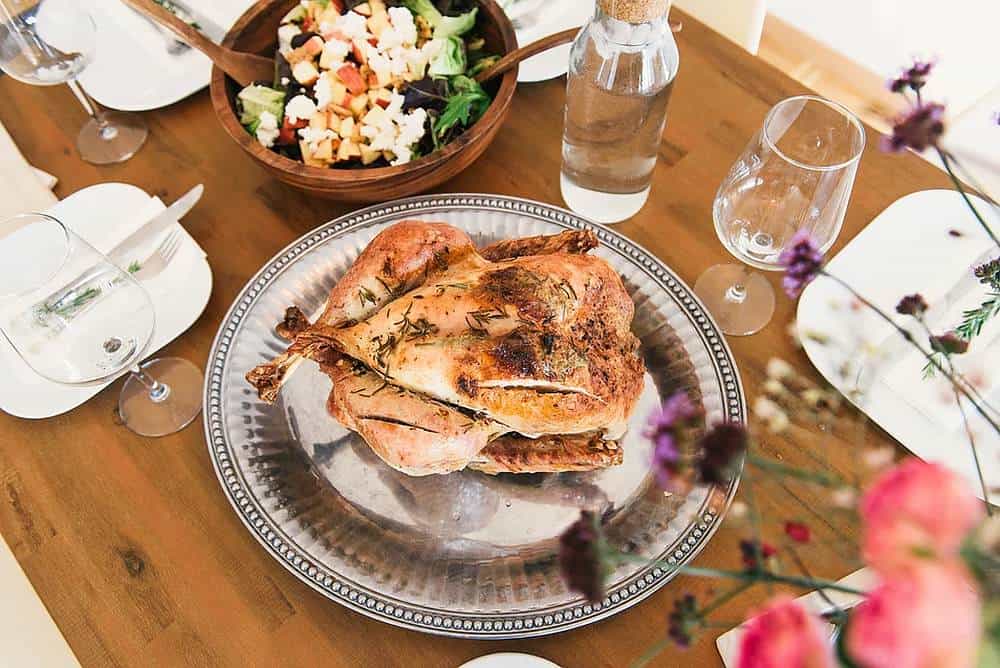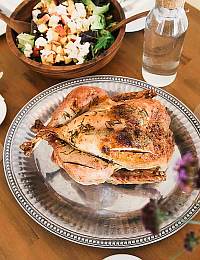
Before I attended the Culinary Institute of America, I was a recipe stickler; I’m not incredibly proud of it, but it’s how every novice in every field starts out, right? We heed the words and transcribed advice of generations past based on the principle that those ‘experts’ have done things we couldn’t attempt to do in our wildest dreams. The prospect of baking a soufflé from scratch without a recipe could almost bring me to tears when I was fifteen: how was I to know the amounts of ingredients, the precise timings, the specifics and nitty gritty details that I obviously had no information about? I needed recipes. I lacked faith in every move I made in a kitchen, scuttling from the salt to the sugar like a frightened rodent and praying to a higher power that dinner would make it to the table.
However, what I loved about cooking back then was the alchemy. I was hypnotized by the way chefs from Heston Blumenthal to Julia Child could manipulate ingredients with incredible dexterity and just…know that the outcome wasn’t going to be a disaster. They knew with confidence how to debone ducks, clean artichokes, sear scallops, and present dishes in which you could see genuine pride. When Ratatouille was released, I remember watching this tiny kitchen mouse chop ingredients and pour crème and stock and toss aromatics and vegetables into the gigantic cauldron that was the soup pot and being utterly star struck—somehow, this animated character knew how to make a simple cream soup, perfect in all its regular, supper-table splendor, and all I wanted was to know how to replicate the result.
This very alchemy has a way of seeming horribly unattainable to the everyday individual; even making a soup can be very daunting indeed (ask any student toiling through a second-term practical at the CIA). But, that’s where the Culinary Institute kicks in. What my chefs here taught me is that cooking isn’t just about throwing ingredients in a pot, cranking the heat and miraculously materializing good food (the movie clearly lied). On the other hand, neither is it about dictatorially adhering to a recipe and praying to every God that it works. The ‘alchemy’ of cooking is much more akin to science: precise, formulated and well-reasoned by nature.
Consider a roast chook. The most peasant-like of all meals, nothing screams satiety and wistful nostalgia quite like having a roast turkey as the centerpiece of a dinner, with its bronze, burnished skin and succulent, butter-soaked flesh waiting to be slathered in gravy. It seemed near impossible for me to achieve before— the skin flabby, the meat over cooked, or the accompanying sauce burnt. But then, that’s probably because I never dried the bird before, or basted it every ten minutes, or didn’t know to scatter the mirepoix a third of the way through the roast at the bottom of the pan. The subtleties of cooking escaped me, and the CIA did a magnificent job at scooping them all up and writing them down, making them accessible to a learning cook.
My basic fundamental skills—sautéing, braising, roasting, stewing—were invigorated with every new chef, every new class, drumming confidence into my psyche and fully fleshing out the process that is cooking. By the time I graduated, recipes weren’t necessary anymore. This Thanksgiving, I knew how to make a cream of mushroom soup, roast a turkey, and bake soufflés for my nearest and dearest to enjoy. I walked through the kitchen with quiet confidence nerves weren’t even necessary anymore, not like they were two years ago when it seemed like a good meal couldn’t be served without a hefty dose of fear. Washed clean of them, all that was left this year was the joy of cooking a meal, enjoying it with friends, and washing up the dishes after. I couldn’t be more grateful.
By Altamash Gaziyani
